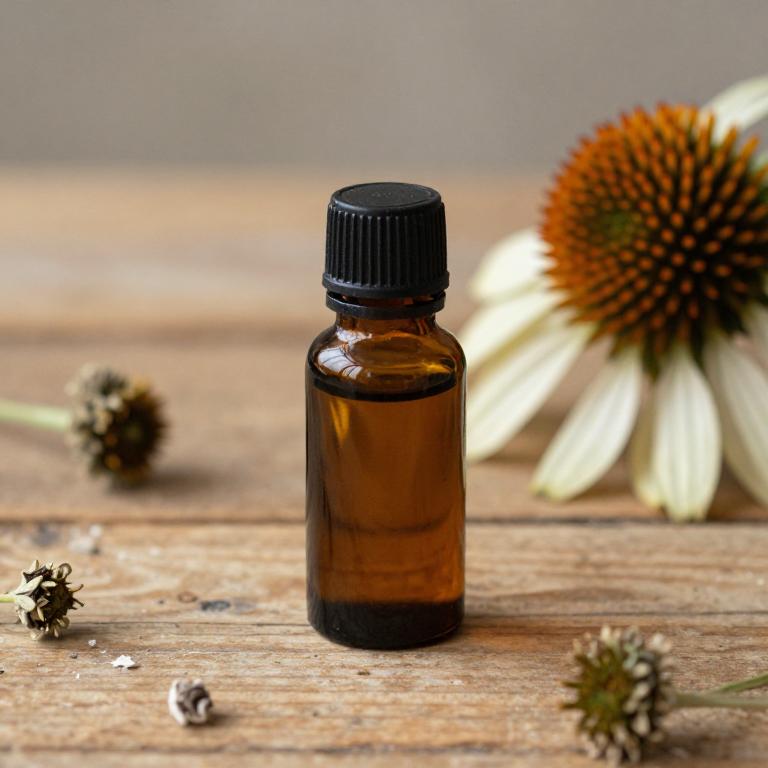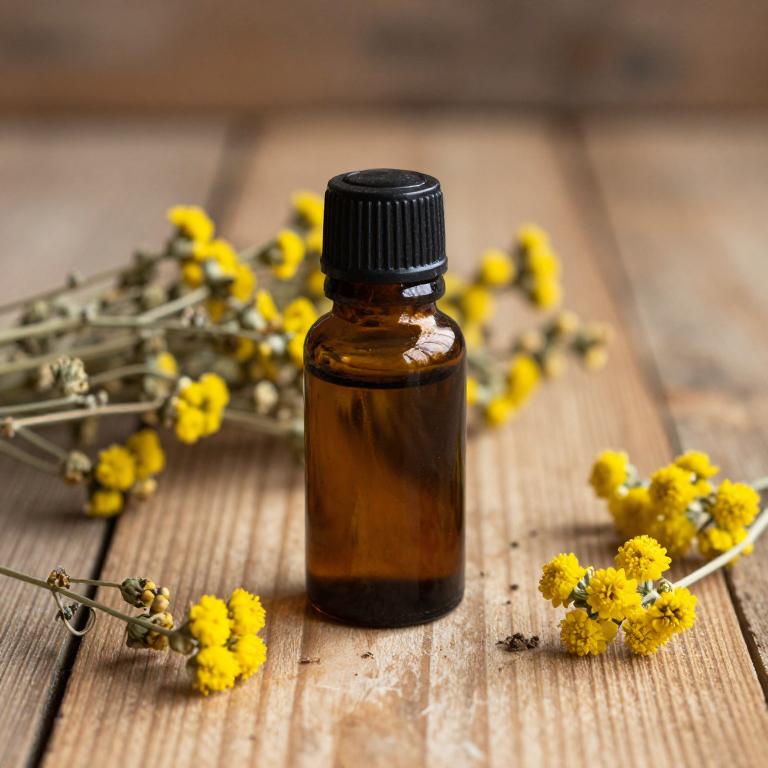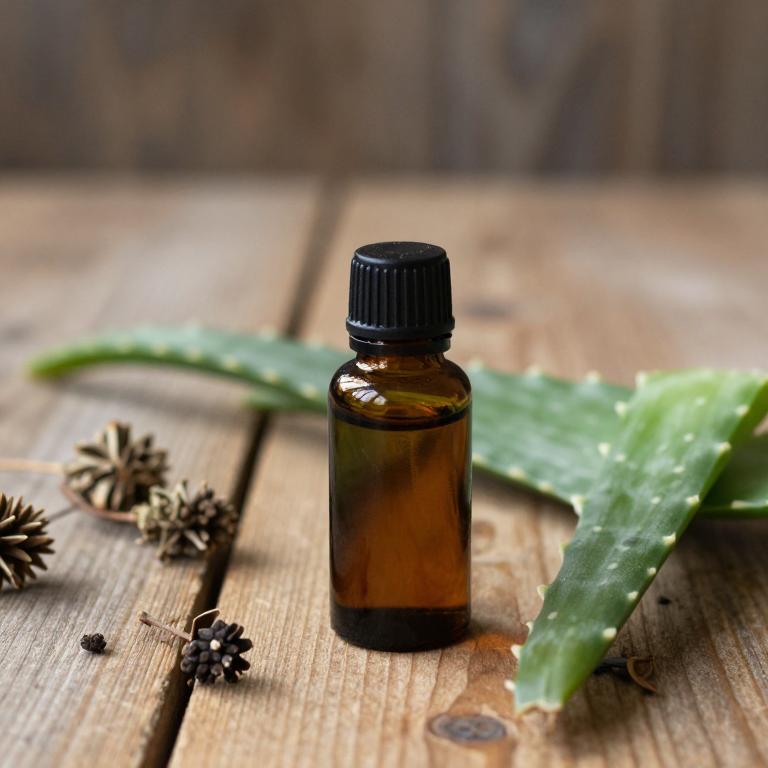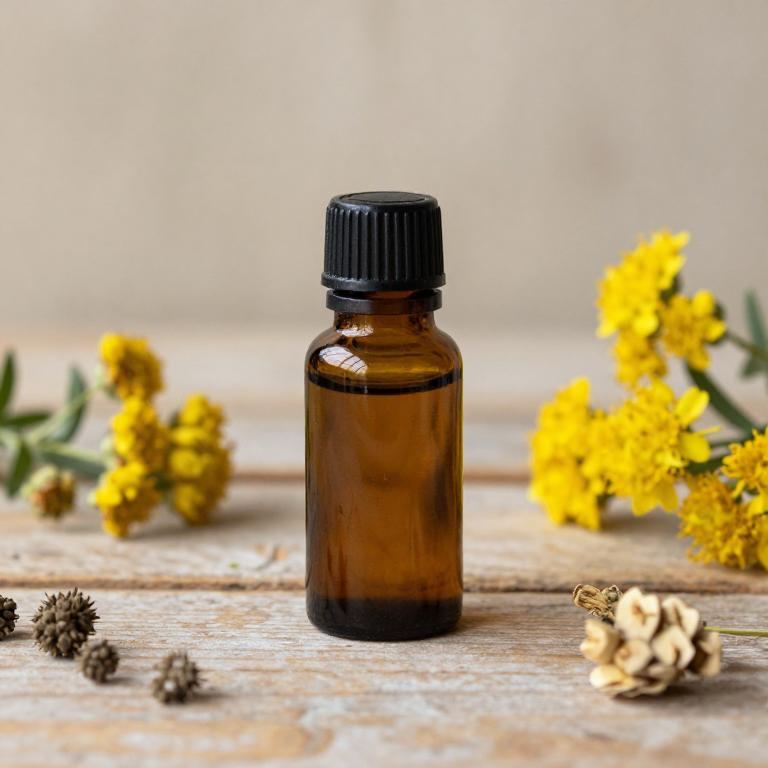10 Best Herbal Essential Oils For Chickenpox

Herbal essential oils have been traditionally used for their potential therapeutic properties, and some may offer relief for symptoms associated with chickenpox, such as itching and inflammation.
Oils like lavender, chamomile, and tea tree are often recommended for their calming and antiseptic qualities, which can help soothe the skin and reduce the risk of infection. However, it is important to note that essential oils should never be applied directly to the skin without proper dilution, as they can be irritating or toxic to children. While some parents may turn to these oils as a natural remedy, they should not replace medical treatment for chickenpox, especially in severe cases.
Always consult a healthcare professional before using any essential oils on children or for treating viral infections.
Table of Contents
- 1. Echinacea (Echinacea purpurea)
- 2. Lemon balm (Melissa officinalis)
- 3. English lavender (Lavandula angustifolia)
- 4. Aloe vera (Aloe barbadensis)
- 5. Rosemary (Rosmarinus officinalis)
- 6. Thyme (Thymus vulgaris)
- 7. Melaleuca (Melaleuca alternifolia)
- 8. Ceylon cinnamon (Cinnamomum zeylanicum)
- 9. St. john's wort (Hypericum perforatum)
- 10. Salvia (Salvia officinalis)
1. Echinacea (Echinacea purpurea)

Echinacea purpurea, commonly known as purple coneflower, is a well-known herbal remedy that has been traditionally used to support immune health.
While it is often used for colds and respiratory infections, its potential benefits for chickenpox are less widely studied. Some preliminary research suggests that echinacea may help reduce the duration and severity of viral infections, including those caused by the varicella-zoster virus. However, there is currently no strong scientific evidence to support the use of echinacea essential oils specifically for treating chickenpox in humans.
It is important to consult a healthcare professional before using any herbal remedies, especially for viral infections like chickenpox, to ensure safety and effectiveness.
2. Lemon balm (Melissa officinalis)

Melissa officinalis, commonly known as lemon balm, is a herbal plant whose essential oil has been traditionally used for its calming and soothing properties.
While there is limited scientific evidence specifically supporting its use for chickenpox, some practitioners suggest that its antiviral and anti-inflammatory effects may help alleviate symptoms associated with the condition. The essential oil of lemon balm can be diluted and applied topically to reduce skin irritation and itching, which are common in chickenpox outbreaks. It is important to note that essential oils should never be used undiluted on the skin and should be avoided during pregnancy or by individuals with certain medical conditions.
As with any complementary therapy, it is advisable to consult a healthcare professional before using lemon balm essential oil for chickenpox.
3. English lavender (Lavandula angustifolia)

Lavandula angustifolia, commonly known as English lavender, produces a calming essential oil that has been traditionally used for its soothing properties.
While there is limited scientific evidence directly supporting its use for chickenpox, some studies suggest that lavender oil may help alleviate symptoms such as itching and discomfort due to its anti-inflammatory and antiseptic properties. When diluted properly, lavender essential oil can be applied topically to reduce skin irritation associated with chickenpox blisters. However, it is important to consult a healthcare professional before using any essential oils, especially for children or individuals with sensitive skin.
Overall, lavender oil may serve as a complementary therapy to support comfort during chickenpox, though it should not replace medical treatment.
4. Aloe vera (Aloe barbadensis)

Aloe barbadensis, commonly known as aloe vera, contains various bioactive compounds that have been studied for their potential therapeutic effects, including anti-inflammatory and soothing properties.
While aloe vera gel is often used topically for skin conditions, its essential oils are less commonly applied for chickenpox due to their potency and potential for skin irritation. Some essential oils derived from aloe barbadensis may offer mild antiviral properties that could support the body's natural healing process during chickenpox. However, it is important to note that essential oils should be used with caution and diluted properly, as they can be harsh on the skin.
For chickenpox, it is generally recommended to consult a healthcare professional for safe and effective treatment options.
5. Rosemary (Rosmarinus officinalis)

Rosmarinus officinalis, commonly known as rosemary, produces essential oils that have been traditionally used for their antiviral and antimicrobial properties.
While there is limited direct scientific evidence supporting the use of rosemary essential oil for chickenpox, its components such as camphor and pinene may help alleviate symptoms like itching and inflammation. These oils are often diluted and applied topically to provide a soothing effect on the skin, which can be beneficial during the recovery process. However, it is important to consult a healthcare professional before using essential oils, as they can be potent and may cause irritation in some individuals.
Overall, rosemary essential oil may serve as a complementary therapy when used safely and in conjunction with conventional treatments for chickenpox.
6. Thyme (Thymus vulgaris)

Thymus vulgaris, commonly known as thyme, is a herb widely used in traditional medicine for its potent essential oils, which contain compounds like thymol and carvacrol known for their antiviral and antimicrobial properties.
These essential oils have been explored for their potential role in supporting the immune system, which is crucial during a chickenpox infection caused by the varicella-zoster virus. While there is no conclusive scientific evidence that thyme essential oil can cure chickenpox, some studies suggest it may help alleviate symptoms by reducing inflammation and promoting healing of the skin. It is often used in aromatherapy or diluted topical applications, though caution is advised due to its strong potency.
As with any herbal remedy, it is recommended to consult a healthcare professional before using thyme essential oil for chickenpox, especially in children or individuals with sensitive skin.
7. Melaleuca (Melaleuca alternifolia)

Melaleuca alternifolia, commonly known as tea tree oil, is a potent herbal essential oil derived from the leaves of the Melaleuca alternifolia plant, native to Australia.
While it is widely recognized for its antiseptic and anti-inflammatory properties, its use for chickenpox is not well-supported by clinical evidence. Some people may use tea tree oil as a complementary treatment to alleviate symptoms such as skin irritation or itching associated with chickenpox. However, it is important to note that tea tree oil should never be applied directly to the skin without dilution, as it can cause irritation or allergic reactions.
Always consult a healthcare professional before using any essential oils, especially for children or individuals with compromised immune systems.
8. Ceylon cinnamon (Cinnamomum zeylanicum)

Cinnamomum zeylanicum, commonly known as cinnamon, produces a potent essential oil that has been traditionally used for its antimicrobial and anti-inflammatory properties.
While there is limited scientific evidence specifically supporting its use for chickenpox, some studies suggest that its compounds may help reduce viral replication and alleviate symptoms such as itching and inflammation. The essential oil can be diluted and applied topically to the affected areas to provide a soothing effect, though it should never be used undiluted on the skin. It is important to note that cinnamon oil is not a substitute for conventional medical treatments for chickenpox, and individuals should consult a healthcare professional for proper care.
Overall, while cinnamon essential oil may offer some supportive benefits, it should be used with caution and in conjunction with standard medical advice.
9. St. john's wort (Hypericum perforatum)

Hypericum perforatum, commonly known as St. John's wort, is a herbal plant that has been traditionally used for its potential medicinal properties.
While it is well-known for its use in treating mild depression in humans, its essential oils have also been explored for their antiviral and anti-inflammatory effects. Some preliminary studies suggest that the essential oils of Hypericum perforatum may possess properties that could support the immune system and potentially aid in the management of viral infections, including chickenpox. However, it is important to note that there is limited scientific evidence specifically supporting the use of St. John's wort essential oils for chickenpox in humans.
As with any herbal remedy, it is advisable to consult with a healthcare professional before using Hypericum perforatum essential oils, especially in children or individuals with compromised immune systems.
10. Salvia (Salvia officinalis)

Salvia officinalis, commonly known as sage, contains essential oils that have been traditionally used for their antimicrobial and anti-inflammatory properties.
While there is limited scientific evidence directly linking sage essential oils to the treatment of chickenpox, some studies suggest that its compounds may help reduce skin irritation and promote healing. When used appropriately, sage essential oils can be diluted and applied topically to soothe the rash associated with chickenpox, though caution is necessary to avoid skin irritation. It is important to consult a healthcare professional before using any essential oils, especially for children or individuals with sensitive skin.
Overall, while sage essential oils may offer some supportive benefits, they should not replace conventional medical treatments for chickenpox.